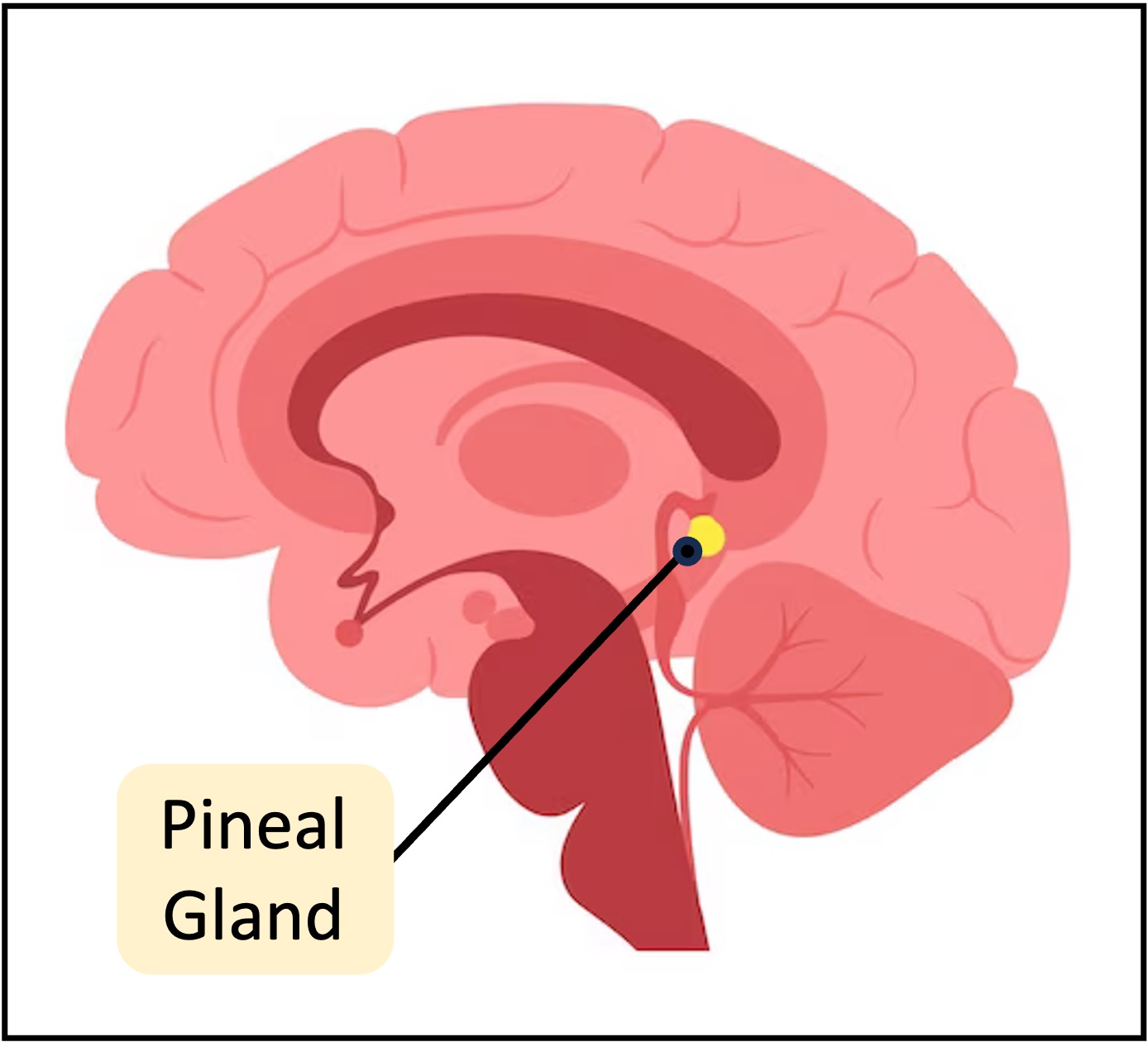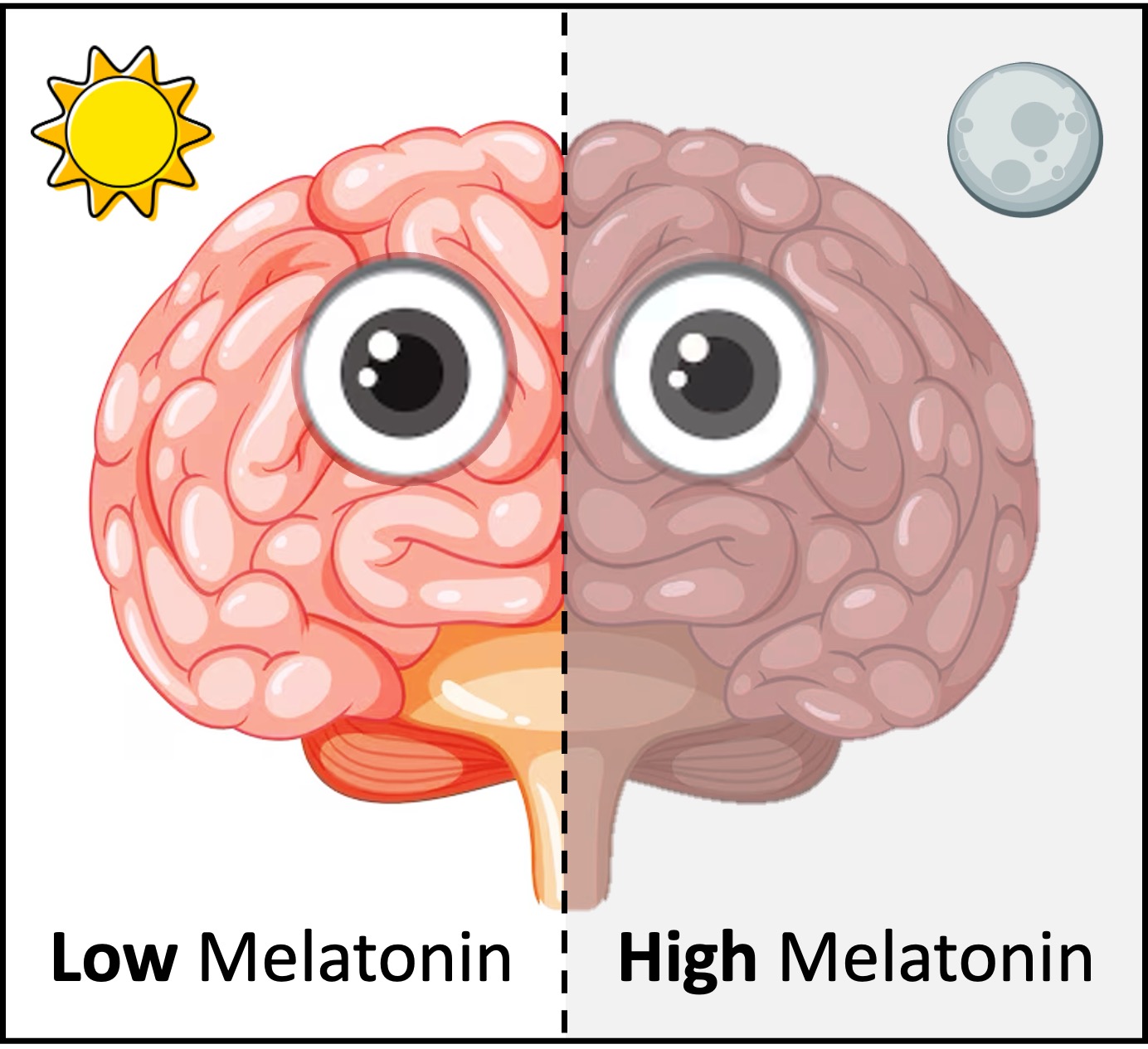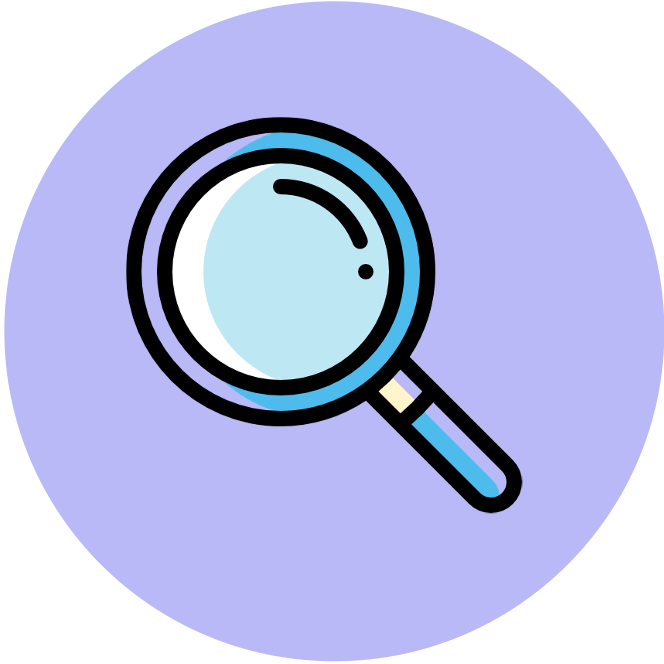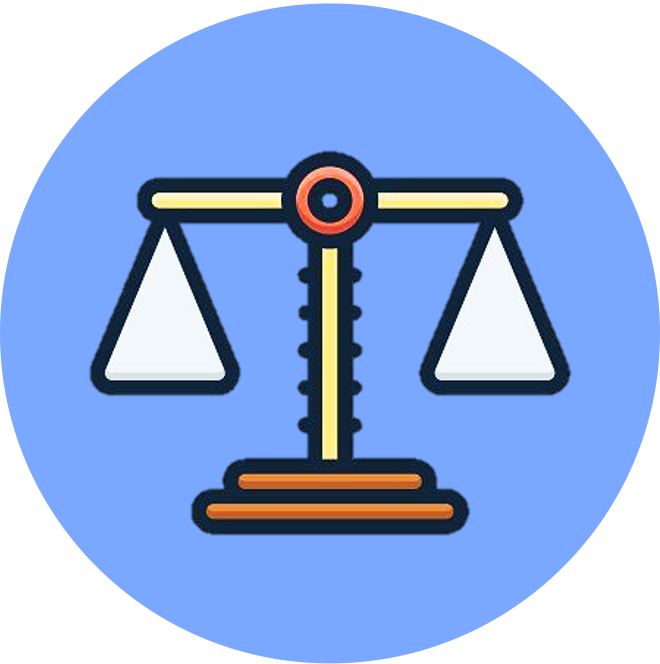

Circadian Rhythms
Circadian rhythms describe the body’s normal physiological responses to the 24 hour day-night cycle
-
Circadian rhythms are driven by an internal (endogenous) circadian clock, although they can be modulated by external factors
Melatonin is a hormone produced by the pineal gland within the brain and is responsible for synchronising circadian rhythms and regulating the body's sleep schedule
-
Melatonin is secreted in response to periods of darkness, resulting in higher concentrations at night
-
Light exposure to the retina is relayed to the hypothalamus, which then inhibits melatonin secretion
-
The hypothalamus contains a small region called the suprachiasmatic nucleus (SCN) which acts as a circadian pacemaker
-
Exposure to blue wavelengths of light (higher during the day) will trigger the suppression of melatonin secretion
-
Over a prolonged period, melatonin secretion becomes entrained to anticipate the onset of darkness and the approach of day
-
Melatonin functions to promote activity in nocturnal animals and conversely promotes sleep in diurnal animals (like humans)
-
During sleep, necessary physiological changes occur in body temperature, brain wave activity and hormonal production
-
Melatonin levels naturally decrease with age, leading to changes in sleeping patterns in the elderly
Modulation of Sleep Patterns

Pineal Gland





